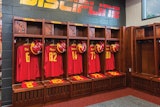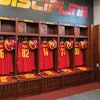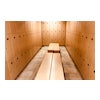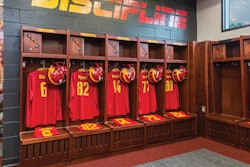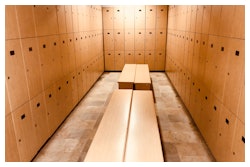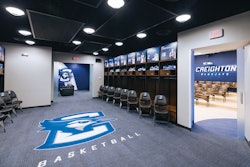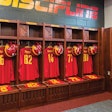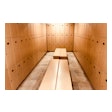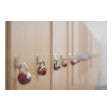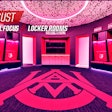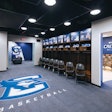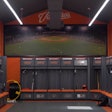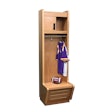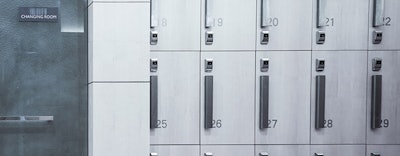
You want the people who visit your facility to feel safe, and they won't if they end up getting their valuables stolen. Locker room locks are important, and the technology has come a long way in recent years, with innovative solutions for ensuring peace of mind that also make management's job easier. Here's a look at some of the types of locks on the market, as well as factors to consider when deciding what's right for your facility:
RELATED: PRODUCT SPOTLIGHT 2019: Locker Room & Laundry Components
Number of openings
Be sure to ask your provider for a preliminary estimate that takes into account the number of openings you'd like to secure, as well as the different types of locks available.
Electronic locks
Electronic combination locks can provide the end-user with intuitive operation and a clear sense of which lockers are available, while easy-to-read displays that show battery life allow facility managers to spend less time in the locker room on support issues.
RELATED: How Marquette designed its lacrosse team locker rooms
Access software
If you've chosen electronic locks, you'll want to check with your provider about access software, in the form of apps or a desktop dashboard. Most high-end electronic units are complemented by a mobile app that allows for easier management of a large number of openings. The software lets users add or remove management keys more easily, see when a lock is opened or closed, and monitor battery levels. While battery life is indeed a drawback of electronic locks, some manufacturers offer batteries that last as long as 10 years.
Mechanical locks
Mechanical locks aren't as flexible as electronic locks. For example, most can't be set to single use and then changed to accommodate multiple users. They're also a little harder to maintain, since facility managers can't instantly audit them with an app or see which units are occupied at a glance. That said, mechanical units essentially serve the same purpose as an electronic lock but at a much lower price point. Another benefit of mechanical locks is their simplicity. Where there are fewer components, there's usually less that can go wrong. Some managers prefer mechanical locks because there's no battery and they're generally easier to troubleshoot than electronic locks.
RELATED: Find more solutions for your facility in the Buyers Guide
RFID Locks
Radio-frequency identification (RFID) locks are perhaps the pinnacle of locker room lock tech at present. They can be accessed using a special card or in some instances the tap of a smartphone. They're also the most expensive option. RFID first caught on in Europe, with adoption increasing recently in the United States. Cost has typically been the primary barrier to entry, but prices have come down considerably in recent years. Users will also have to carry with them a card or device to access this type of lock, which can be a drawback if they happen to be working out or participating in an activity.
This article originally appeared in the July | August 2019 issue of Athletic Business with the title "Purchasing Guide" Athletic Business is a free magazine for professionals in the athletic, fitness and recreation industry. Click here to subscribe.









